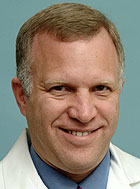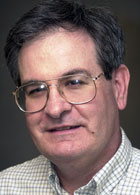The School of Medicine has received a five-year, $3.9 million grant to lead an international research effort designed to improve outcomes for children undergoing lung transplants.

A lung transplant is often the only treatment option for children with severe lung disease such as cystic fibrosis, pulmonary vascular disease, genetic or inherited lung problems or birth defects. However, lung transplant patients are subject to more frequent infections, organ rejection and other complications than patients with other transplanted organs. Despite tremendous improvements in surgical techniques and infection control, there has been no improvement in long-term outcome or survival for these patients in the last decade. The one-year survival rate for pediatric lung transplantation is about 80 percent, and for those who survive the first year after transplantation, the survival rate after five years is about 50 percent. Those survival rates are much lower than similar rates for pediatric heart, liver and kidney transplants.
The grant, from the National Institute of Allergy and Infectious Diseases, provides funding for the School of Medicine to play a major role in the Clinical Trials in Organ Transplantation in Children consortium.
The School of Medicine and St. Louis Children’s Hospital will lead the Pediatric Lung Transplant Research Network, which consists of six pediatric lung transplant programs. It is the first pediatric lung transplant research network ever established by the National Institutes of Health. The six centers will work cooperatively with investigators in pediatric kidney and heart transplantation to carry out immunologic clinical research that will lead to improved outcomes for children undergoing organ transplants.

The pediatric lung network will study respiratory viral infections that often strike these patients after transplant using state-of-the-art techniques to identify the viruses and to study the underlying immune mechanism in the lungs that would contribute to these complications, said Stuart C. Sweet, M.D., Ph.D., associate professor of pediatrics, medical director of the School of Medicine’s pediatric lung transplant program and principal investigator of the lung transplant network.
“Our hypothesis is that respiratory viral infections in pediatric lung transplant recipients play a significant role in the development of long-term complications due to interaction with the immune system,” Sweet said. “Pinpointing these viruses and immune responses will allow us to design new ways to predict a patient’s risk of infection and to improve the outcomes of children who have lung transplants.”
Established in 1990, the pediatric lung transplant program at the School of Medicine and St. Louis Children’s Hospital was the first pediatric lung transplant program in the United States. To date, it has performed the most pediatric lung transplants worldwide, or more than 300 since 1991.
“We are ecstatic to be a part of this program,” Sweet said. “Especially in pediatric lung transplants, the improvement in outcomes has lagged behind outcomes of other solid organ transplants, so we’re looking at ways to catch up. We expect the results of this research to have a significant beneficial effect on the health of children who receive lung transplants.”
The other pediatric lung transplant programs in the consortium include Ohio State University School of Medicine/Columbus Children’s Hospital; Baylor College of Medicine/Texas Children’s Hospital; The University of Pennsylvania School of Medicine/The Children’s Hospital of Philadelphia; Great Ormond Street Hospital for Children in London; and Stanford University School of Medicine/Lucile Packard Children’s Hospital. In addition, there will be five immunology, histology and virology laboratories at WUSTL, Mount Sinai Medical Center and Cleveland Clinic/Lerner College of Medicine at Case Western Reserve University in the network.
“This broad collaboration of investigators and researchers at these world-class institutions is the perfect combination of expertise, dedication and leadership to improve outcomes for pediatric lung transplant patients,” said Alan L. Schwartz, Ph.D., M.D., the Harriet B. Spoehrer Professor and head of the Department of Pediatrics. “The results of these studies will lead to the design of innovative viral detection and immune monitoring plans that can help predict a child’s risk of adverse outcomes and improve their outlook.”
The School of Medicine and St. Louis Children’s Hospital will also be part of the six-site Pediatric Heart Transplant Network included in the consortium. Charles Canter, M.D., professor of pediatrics at the School of Medicine, serves as the principal investigator of the School of Medicine site.